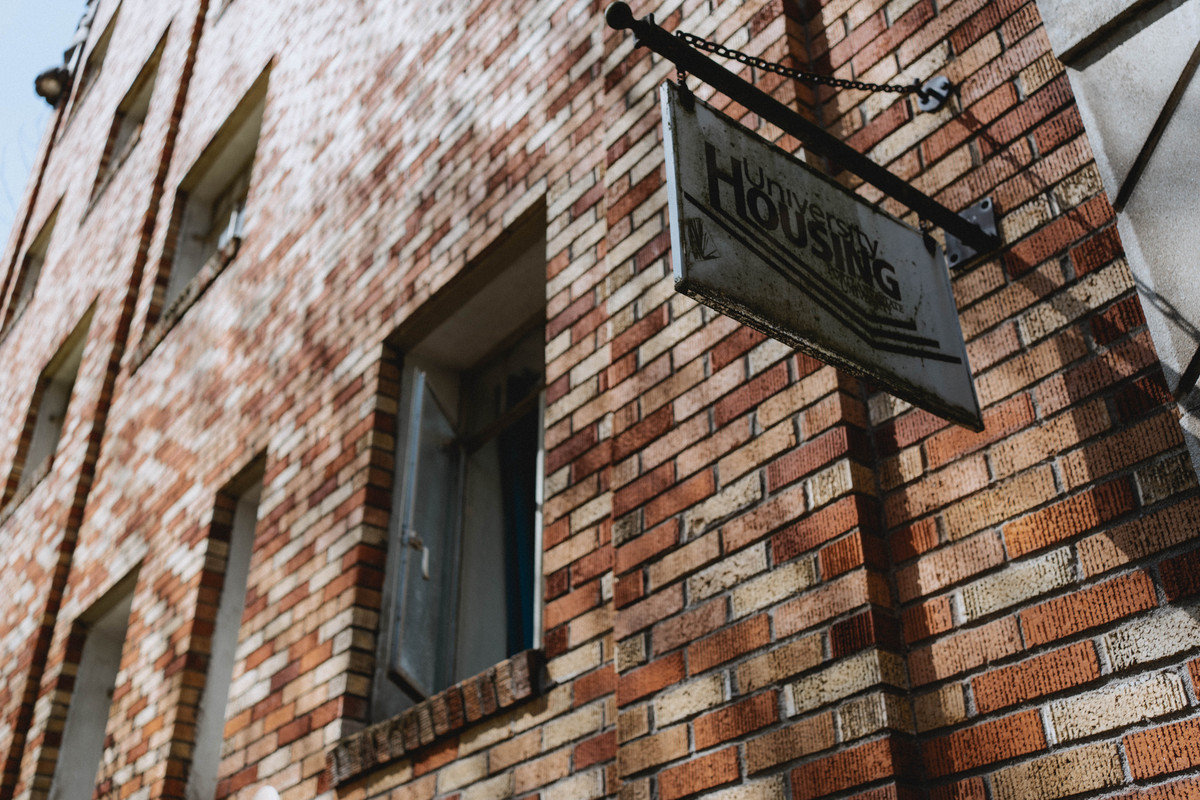As 95% of the United States’ population is currently under a type of stay-at-home directive, many people are figuring out how to balance school and work with the family dynamics in their homes. What about the students who call Portland State home?
Although many of the 1,800 students originally living on campus returned home to complete a fully remote spring 2020 term, approximately 650 students remain in PSU’s residence halls—more than in any other university in Oregon, according to Executive Director of University Housing and Residence Life Mike Walsh.
When schools across the country shut down housing options or required students to apply and be approved to stay only under certain circumstances, as the University of Portland opted to do, PSU decided to keep all residence halls open for any student needing or wanting to stay.
“This is home for a bunch of people, and we are going to stay open for them,” Walsh said. “I don’t know how any school could in good conscience close an entire residence hall system.”
Since PSU allowed any student living on campus to remain on campus if they wished, the reasons for remaining on campus varied from student to student.
“I decided to stay on campus this term because I work in Portland at a law firm, and would be unable to do my job from anywhere else,” said Jessa Greene, an out-of-state student from California living in Montgomery Residence Hall.
“Moving off-campus would have meant giving up my position as an LCA,” said Sandhya Gunarathne, a student who has worked as a learning community assistant since the beginning of the academic year. “Though I wasn’t sure how many residents would stay, I wanted to be available to those who were.”
With the amount of students that have left, life has changed for those who remain.
“Living on campus during this time is really weird,” Greene said. “This is my second year living on campus and I’m definitely not used to all the quietness.”
“It’s definitely different living on campus,” said Fiona Pelkie, an out-of-state student from Washington living in Ondine Residence Hall. “There are no longer the social aspects of the typical college experience I had, like the dining hall having seating where you can talk to people, the library being open late for study groups, floor hangouts or events put on by RAs and LCAs.”
Outside of Housing, closures and adjusted hours for the few nonresidential buildings that remain open have impacted the daily routines of students on campus.
“I think the biggest change as a student leader was going from seeing people at all hours of the day to only seeing others virtually for a couple of hours a week,” Gunarathne said. “The only time I leave my dorm is when I get takeout from the dining hall, so the only people I’ve been talking to in real life have been dining staff.”
“I prefer to study in the evenings, or late at night, and the library closing at 7 p.m. every weekday definitely meant readjusting my schedule and reorganizing my study space in my dorm,” Pelkie said.
“During normal times, the way I usually de-stress is by swimming,” Greene said. “So you can imagine that these uncertain times I would need a way to de-stress. Having the rec center closed is also making it a little more difficult to find a good way to get exercise, because I’m not someone who enjoys running.”
The Montgomery Service Desk suspended its package services on March 16, and has only allowed pickup of medical supplies since, limiting what mail residents can receive.
“With UHRL closing all package services, I’m not able to get any packages that may be sent to me either through online shopping, my family sending care packages and even anything for my birthday next month,” Greene said.
Although adjusting to the new reality of daily life on campus has created change in student’s lives, not all of it has been negative.
“I like living on campus still despite the emptiness of the buildings and the park blocks,” Pelkie said. “I feel like I now have more quiet time, and can be more centered and focused.”
“I do like having my own room and privacy and the streets are a lot quieter with more people staying inside,” said Sriyani Gunarathne, a PSU student who decided to stay on campus with their sibling, Sandhya Gunarathne, to avoid putting their family at home at risk.
UHRL has also taken extra measures to facilitate social distancing and increase cleanliness for students remaining on campus, from moving students to single spaces and hiring more people to clean shared spaces.
“Anyone who hadn’t moved out and still had a roommate was moved into their own room to promote social distancing,” Sriyani Gunarathne said. “The dining hall is all to-go with wrapped food and limited options. The elevators and lobbies have signs warning about crowding and such.”
Due to social distancing requirements, many of the traditional ways of interacting in residence halls have become impossible, but the student leaders that decided to remain on campus are working to find new ways to interact with their remaining residents.
“I think that my RA and LCA have done a really good job of making the floor still feel like it’s a community by communicating with us,” Pelkie said.
“LCAs have also been doing virtual programming, which looks like weekly emails from us talking about various resources and ways to stay connected,” Sandhya Gunarathne said. “We can’t offer free food or swag as we’ve done for past programs, but I like to think residents feel less alone when they receive those weekly emails from us.”






